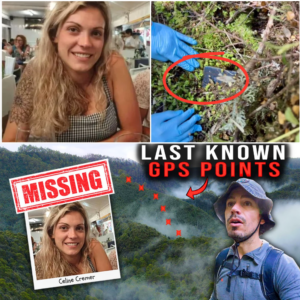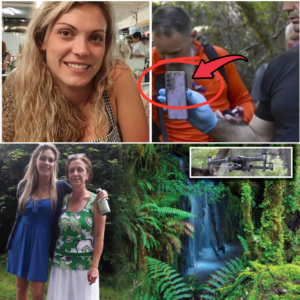The return of Jodie Foster to the horror genre with HBO’s True Detective: Night Country has sent ripples of excitement through the entertainment world, marking a significant moment in her illustrious career. Premiering on January 14, 2024, this fourth season of the acclaimed anthology series has been a critical and viewership triumph, earning a rare 93% approval rating on Rotten Tomatoes and becoming HBO’s most-watched limited or anthology series of 2024. As of 03:27 PM on Friday, July 18, 2025, Foster’s decision to step back into the chilling waters of horror—nearly 33 years after her Oscar-winning role as Clarice Starling in The Silence of the Lambs—has sparked widespread intrigue. Her explanation for this return, coupled with her firm stance against joining Season 5, has fueled anticipation for what promises to be an even more surprising future for the series, leaving fans eager for the next chapter.
The Return to Horror
Foster, now 62, has long been selective about her projects, a trait she attributes to a “deep, gnawing curiosity” that drives her acting choices. In a January 2025 interview with TheWrap, she revealed that True Detective: Night Country reignited her passion for horror, a genre she mastered with The Silence of the Lambs in 1991, which swept the Academy Awards’ top four categories. After opting out of the 2001 sequel Hannibal—a decision that led to Julianne Moore taking over as Clarice—Foster had largely steered clear of horror, focusing instead on dramas like Nyad (2023) and directing ventures. However, the script for Night Country, penned by Mexican filmmaker Issa López, proved irresistible. “The moment they said ‘True Detective,’ I was reading within minutes,” Foster told Variety in January 2024. “That first season meant so much to me—I couldn’t not choose it.”
Her role as Detective Liz Danvers, the hard-edged police chief of the fictional Ennis, Alaska, allowed Foster to explore a character hardened by grief and isolation, set against the eerie backdrop of polar night—a period of 60 days without sunlight. The season’s narrative, blending hard-nosed detective work with supernatural undertones, resonated with Foster’s early horror roots. She explained to Time in January 2024, “The script gripped me with its resonance—grief, how the dead walk among us. It felt like a natural evolution from Silence, which inspired Se7en and, in turn, True Detective.” López, who created, wrote, and directed all six episodes, embraced this lineage, drawing inspiration from classics like The Thing and The Shining, while honoring the original season’s tone. Foster’s connection with López sealed the deal: “That meeting with Issa did it. I wanted to serve her vision,” she said in TheWrap.
Season 4: A Dark Triumph
True Detective: Night Country follows Danvers and her estranged partner, Evangeline Navarro (Kali Reis), as they investigate the disappearance of eight scientists from the Tsalal Arctic Research Station. The season, filmed in Iceland’s frigid landscapes, immerses viewers in a haunting world where the line between reality and the supernatural blurs. The plot kicks off with a chilling discovery: the scientists’ bodies, frozen in a grotesque pile on the ice, bearing bite marks and a cryptic message, “We are all dead.” This case reconnects to an unsolved murder of Indigenous activist Annie Kowtok, weaving a tapestry of racial tensions, corporate greed, and personal demons.
A pivotal twist in Episode 4 reveals that the scientists’ deaths were tied to a cover-up by the mining company, which poisoned local water, leading to Annie’s murder—a crime Danvers had dismissed years prior. The supernatural elements, including ghostly visions and a one-eyed polar bear, culminate in the finale’s shocking reveal: the scientists’ fate was a collective act of guilt-driven suicide, orchestrated by their own hands after Annie’s spirit, or a psychological manifestation, haunted them. This resolution, blending Indigenous folklore with human frailty, earned praise for its bold departure from previous seasons’ male-dominated narratives, with Foster’s portrayal of Danvers’ reluctant redemption anchoring the emotional core. The season’s 19 Emmy nominations, including wins for Foster as Outstanding Lead Actress, underscore its impact.
No Return for Season 5
Despite Night Country’s success—garnering 12.9 million viewers and the highest ratings for the series—Foster has firmly ruled out a return for Season 5. In a March 2024 interview with Variety on the Oscars red carpet, she stated, “It was one and done. It’s an anthology.” This stance aligns with the series’ format, which introduces new casts and stories each season, a tradition set by Nic Pizzolatto and continued by López. Foster elaborated to TVLine in January 2024, “It’s tempting to revisit Danvers, but the characters grew. Drama about grown people is less interesting than those needing growth.” López echoed this in a Thrillist interview, noting, “It would be a disservice to take them further—they broke through themselves.”
This decision has disappointed some fans, who flooded social media with pleas for a Danvers-Navarro reunion, but it has also heightened anticipation for Season 5. López, returning as showrunner, promised “even more surprises” in a July 2025 BBC News statement, hinting at a new direction that could rival Night Country’s intensity. With Pizzolatto’s limited involvement—credited only as an executive producer—López’s vision will shape the next installment, potentially exploring fresh settings or themes, though details remain under wraps.
Themes and Impact
Night Country explores grief, identity, and the unseen toll of industrial exploitation, with Danvers’ arc reflecting Foster’s own journey back to horror. The season’s focus on Indigenous perspectives, particularly through Navarro’s heritage, adds a social conscience, a departure from the male-centric existentialism of earlier seasons. Foster’s return, after a 50-year gap since her 1975 TV role in Paper Moon, showcases her versatility, drawing parallels to Clarice Starling’s resilience. López’s direction, blending psychological horror with detective work, has been lauded as a revival, with The New Yorker calling it “a balancing act of human horrors and magical realism.”
The cultural impact is palpable. Night Country’s success—outpacing Seasons 2 and 3’s viewership—has revitalized True Detective, with its Iceland shoot boosting tourism and its themes resonating globally. Fans on social platforms celebrate Foster’s “electric” performance, with posts found online describing it as “a masterclass in suspense.” The season’s 19 Emmy nods, including Outstanding Limited Series, reflect its critical acclaim, though some, like Slate, critiqued its supernatural leanings as overreach, a sentiment echoed in mixed viewer reviews.
Looking Ahead
As July 18, 2025, unfolds, Foster’s horror comeback and exit from True Detective frame a narrative of reinvention. Her choice to leave Danvers behind ensures the anthology’s freshness, while López’s promise of surprises—possibly a male-led season or a new cultural lens—keeps the series dynamic. Foster’s legacy, enriched by this return, sets a high bar, leaving fans eager to see how True Detective will evolve without her, yet confident in its ability to deliver more twists and turns.



